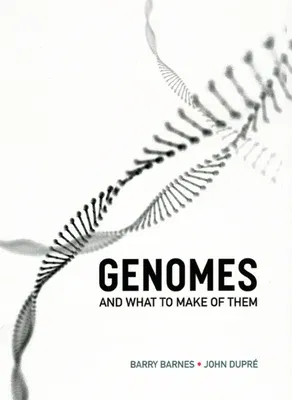The announcement in 2003 that the Human Genome Project had completed its
map of the entire human genome was heralded as a stunning scientific
breakthrough: our first full picture of the basic building blocks of
human life. Since then, boasts about the benefits--and warnings of the
dangers--of genomics have remained front-page news, with everyone
agreeing that genomics has the potential to radically alter life as we
know it.
For the nonscientist, the claims and counterclaims are dizzying--what
does it really mean to understand the genome? Barry Barnes and John
Dupré offer an answer to that question and much more in Genomes and
What to Make of Them, a clear and lively account of the genomic
revolution and its promise. The book opens with a brief history of the
science of genetics and genomics, from Mendel to Watson and Crick and
all the way up to Craig Venter; from there the authors delve into the
use of genomics in determining evolutionary paths--and what it can tell
us, for example, about how far we really have come from our ape
ancestors. Barnes and Dupré then consider both the power and risks of
genetics, from the economic potential of plant genomes to overblown
claims that certain human genes can be directly tied to such traits as
intelligence or homosexuality. Ultimately, the authors argue, we are now
living with a new knowledge as powerful in its way as nuclear physics,
and the stark choices that face us--between biological warfare and gene
therapy, a new eugenics or a new agricultural revolution--will demand
the full engagement of both scientists and citizens.
Written in straightforward language but without denying the complexity
of the issues, Genomes and What to Make of Them is both an up-to-date
primer and a blueprint for the future.

